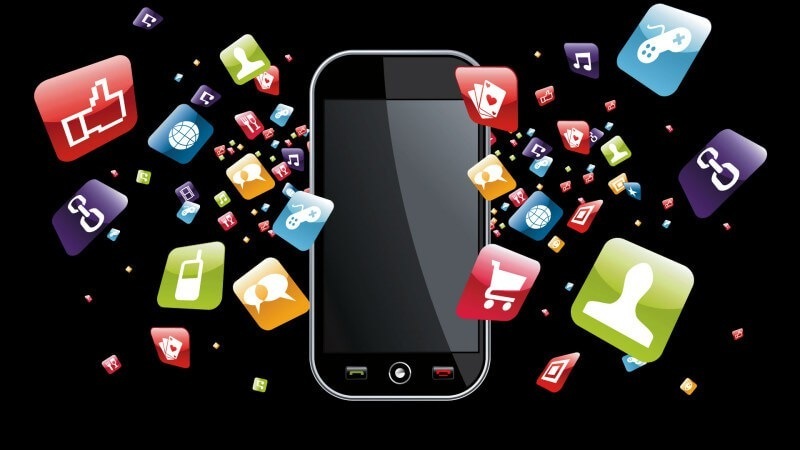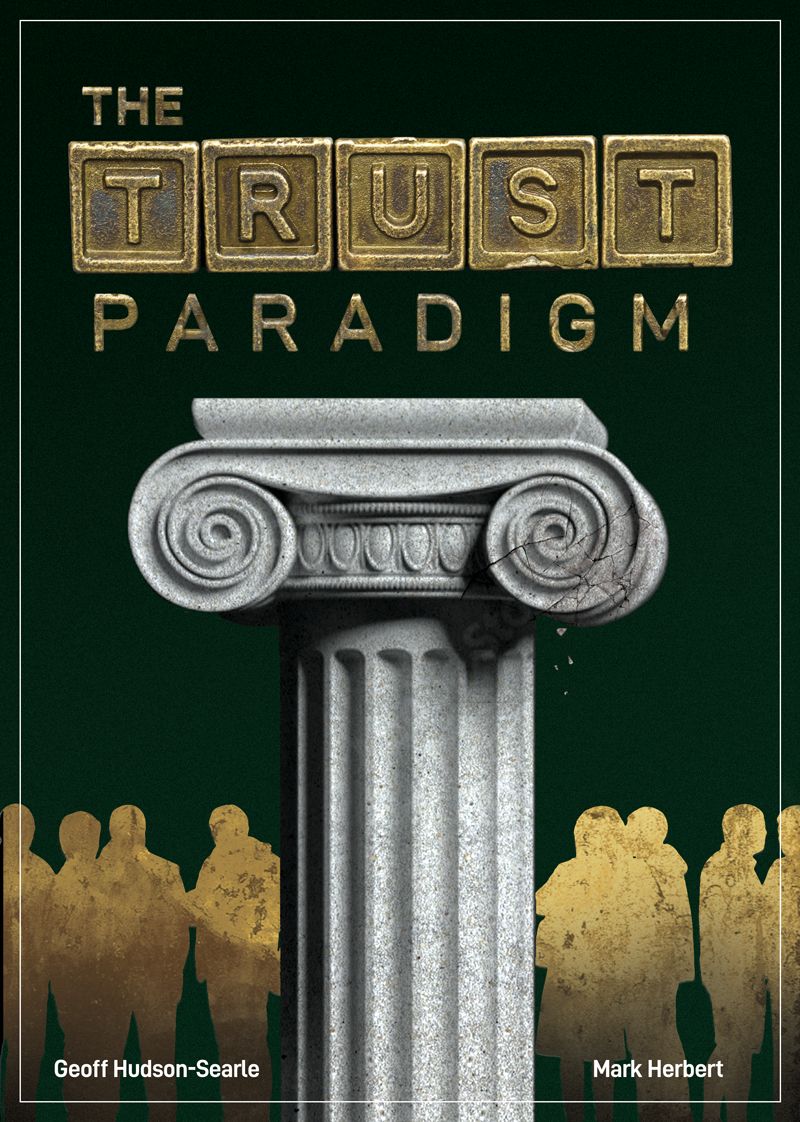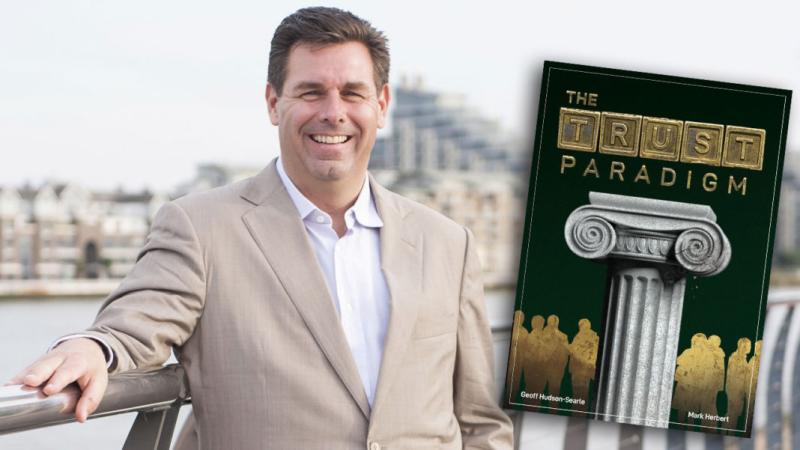With all the apps in today's world do we have time for reflection

You may recall I wrote a buzz a few months ago called 'Ever wondered why there is not an app for introspection', this topic seems to be one that people are constantly looking for the answers, speaking with Ali 🐝 Anani, Brand Ambassador @beBee I felt the subject should be continued as the answer is not fulfilled from a great novel in Waterstones Bookshop, nor is it answered in the Play Store, it starts with our inner self.
I recently caught up with a really great friend and colleague for lunch in Liverpool Street – this area is in the heart of London’s financial district, the City area is crawling with people walking, running, pushing other people and everyone is creating this chaos whilst on a device.
My friend is a technologist and very successful entrepreneur, we have worked together for years on various projects and in particular future innovation of tech, so we started by discussing the app’s market. I stated that there seems to be an app for absolutely every situation: you can have a virtual girlfriend app, a sleeping app, an exercise walking app, even a speed listening app, and an app that ranks your current marriage or relationship – we live in an app world.

He started to laugh and smiled – seeing that he had pushed one of my human to human push buttons, he said I do understand, but what did we ever do without apps? I mean, aside from enjoying the outdoors and talk to our families and spend quality time with our friends, that’s rhetorical. The transformation of portable phones from conversation devices to fully functional mobile computers has created a tiny software economy that produces hundreds of new apps every day. While the great majority of those apps fade into obscurity within days, some become part of a global conversation. It’s hard to imagine life without Instagram or Dropbox, for example. Others, though, become big stories for other reasons. Some apps are just such bad ideas that people cannot stop talking about them. Some become popular for no reason that we can see. And some are just amazing.
While the world has gone crazy for app’s its growth and huge userbases are significant, there’s a growing trend in messaging where companies are taking different tactics on how people young and old should keep in contact. From keeping things secret to deliberately keeping the conversation quick and lively, messaging has come a long way since simply sending each other texts. Going back as far as Your Away Message, we’ve seen that people aren’t just using these messaging services to tell people think, but plan.
However, while app’s are really interesting, anyone who has a smartphone bursting with downloaded apps is a rare breed and getting rarer. Apps are on the wane. According to analysts at Comscore, most people (65%) are not downloading apps at all, and get by with whatever comes pre-installed on phones.
This video, 'Too many devices, too much information, too many apps, too many passwords, puts my words in prospective:
We live in a world of frenetic activity. Reflective practice is hardly possible or practical in this age of the busy corporate executive who is socialised to be a person of action, not of reflection. Action is required. Delaying decisions is seen as a sign of weakness, even if the delay may subsequently produce a better decision. CEOs want an answer rather than a question; they are looking for solutions rather than problems. Yet, is it possible that the frenetic activity of the executive is a drug for the emptiness of our organisational souls, that constant action may merely serve as a substitute for thought?
Society gives reflection and its counterpart, listening, short shrift. We do not seem to be interested in the whole story. We even perfect the art of interruption so that we can show our ‘‘proactivity’’ and gain the boss’s attention. There was a time before instant replay when humans had to get the whole message or it would be lost forever. We seem to be unwilling to perfect the art of public reflection, in which we show a willingness to inquire about our own and our colleague’s assumptions and meanings.
While accepting that there is simply too much information, that we can get hooked into bad habits, there has to be another way of thinking about all this without the “Stop the world! I want to get off” model. Ten years ago, all sorts of people were giving fairly apocalyptic warnings about where this online dependency would lead. We were warned of depression and detachment, of a world where no attention could ever be sustained. We would no longer pause or reflect. All of us would just be looking for instant dopamine hits online. And yet, it seems very few actually have opted out, and that opting out is something of a privilege.
We no longer use phrases such as “digital natives”, because now we simply live in a digital culture. All the eye-rolling over teenagers having an umbilical attachment to their phones is somewhat pointless, isn’t it or is it?
It is possible to accept that social media may cause anxiety and unhappiness and that those networks do not often work out equally, but we surely have to move away from always opposing the real world to the online world. They are integrated. These huge shifts have reshaped the presentation of self, who and what we have access to, the boundaries between work and leisure, the very concept of privacy. It has happened. Simply telling people to switch off from a bad thing is unrealistic.
Professor Paul Dolan said iPhones and tablets distract us from our loved ones. He warned people could suffer ‘mental illness’ unless they ‘put them down’. In a talk on happiness he also said the married and religious are generally happier. Men in their 40s are among the most unhappy, he said ‘The secret to happiness is turning off your mobile phone and concentrating on your friends and family rather than text messages and emails, an expert on happiness has said.
Professor Dolan, from the London School of Economics, believes that the popularity of iPhones and other smart phones has seen people constantly having their attention drawn away from their nearest and dearest and to the devices instead. He warned that unless people changed their behaviour, they could suffer mental illness as a result.
He told an audience at the Hay Festival – a celebration of culture and social responsibility, in Cartagena, Colombia, that there are also now mental conditions called internet addiction and Phantom Vibration Syndrome, where you have a phone in your pocket and you think you have got a text message but have not.
He said: ‘We’re constantly having our attention distracted and distraction is a cost’.
‘When you switch tasks it requires attention. Paying attention to what you’re doing and who you are with and turning your phone off and enjoying being with your friends is much better for you than constantly checking your phone and checking emails’, The Telegraph reports.
Prof Dolan was once a member of the Cabinet Office’s Behavioural Insight Team. It was set up to suggest small ways that people could change their way of life to improve it. He said the solution could lie in introducing small changes to the environment in which people use their mobile phones.
Prof Dolan’s told an audience that unless high culture reasserted itself in the face of television and computers, society would face the prospect of an ‘authoritarian nightmare of a world controlled by technology.’
The number of text messages sent in Britian each year is around 38.5billion.
Final thoughts are that we do not need statistics to tell us we are over-attached to our technology. We already know this to be true, but we need to be reminded again and again: Technology has a power-off button. And the wisest of us know when to use it.
Learning to power-down technology is an important life skill with numerous benefits. It is becoming a lost art in our ever-connected world. But the wisest of us take time to learn the discipline. And live fuller lives because of it.
I challenge you to put away your phones when you are eating with people. Do not even set it on the table. Remove the temptation to use it and talk to the people around you. Truly listen to them, without distractions like phones. Maybe when you are using public transportation, talk to the person sitting next to you, asking that person how their day was, smiling at them and paying attention to them will be the highlight of their day. Your phone will never appreciate the time you spent with it like people will, even if it is during a short tube or train ride, and in the state of reflection and creativity, how can you reflect, be creative or even think if you have 200 messages a minute from social media channels or texting, is it time to turn you phone off for these brief but important interludes…….?
A great quote by Earl Nightingale:
“Learn to enjoy every minute of your life. Be happy now. Don’t wait for something outside of yourself to make you happy in the future. Think how really precious is the time you have to spend, whether it’s at work or with your family. Every minute should be enjoyed and savored.”
"""
Articles from Geoff Hudson-Searle
View blog
https://www.youtube.com/watch?v=QARm4UQqcLM · The first interview for ‘The Trust Paradigm Book’, Geo ...

A recent publication by Business Mondays, published a recent interview on Geoff Hudson-Searle, that ...

An interesting subject that seems to be appearing more and more is: ‘what makes each individual uniq ...
Related professionals
You may be interested in these jobs
-

Cashier
Found in: Jooble UK O C2 - 1 day ago
SA Recycling LLC Sheffield, United KingdomMust be available to work Monday through Friday 7:30 a.m. to 3:30 p.m. and Saturday 7:30 a.m. to 12:30 p.m. · This team member will be responsible for: · Balance currency, coin, and checks in cash drawers at ends of shifts, and calculate daily transactions using computers, cal ...
-

Store Advisor, on Tokyo
Found in: Jooble UK O C2 - 1 day ago
ON RUNNING London, United KingdomIn short · This is your opportunity to become a core part of On's Direct-to-Consumer (DTC) team and commence the journey to bring On's flagship store in the heart of Tokyo alive On will rely on you to deliver exceptional customer service to each and every customer while embodyin ...
-
Net Zero Energy Director
Found in: Talent UK C2 - 11 hours ago
RSK Group Chester, United KingdomBinnies is recruiting a Director of Net Zero Energy (NZE). The role comprises: · Leading on the development, implementation and delivery of the NZE Growth Pillar as part of the continuing growth of Environmental Consultancy in this area; and, · Acting as a Primary Project Directo ...

Comments
Louise Smith
6 years ago #16
"I try not to think what life will be like in 20 months, 20 years will be life changing! " I have a reasonable idea of what life will be like in 20 months time. But I have no idea what life will be like in 20 years time. If I am here !
Geoff Hudson-Searle
6 years ago #15
Devesh \ud83d\udc1d Bhatt I am of the same opinion, that we can change in an instant, the question is how much we really want this change, do we just like the idea or concept or are we committed to change and transformation. This is another great subject, thank you for these great contributions.
Devesh 🐝 Bhatt
6 years ago #14
speaking of gut reaction and intuition. Intuition is a source of reflection and vice versa. I believe that we can change ourselves instantly, including the intuitive response. But it is hard to convince others that i have changed, so i do not try. For eg... we may percieve an environment as different , knowingly or unknowingly, thereby changing the response mechanism. Thanks for such an informative and quick response.
Lisa Gallagher
6 years ago #13
I like your philosophy on life Geoff. I think certain apps can cause regret as well as Social Media Platforms if people have high expectation or tend to compare themselves to others. Facebook is a great example. They've done studies and found people can become depressed if they use FB a lot. Because, they do tend to compare their lives with those of others. It's easy to make it appear as though one is living the most exciting and 'perfect' life on FB but that can be an illusion many times. There is a great site for men called the Goodmenproject.com which men write about many topics including dating. I love to read the articles when I have time to understand the male perspective more.
Geoff Hudson-Searle
6 years ago #12
Thank you Lisa \ud83d\udc1d Gallagher for your kindness and words, I did smile at your words, I still have a landline too :-) I think matt has a point across the amount of time spent on a single app, by comparison, research has shown the average person looks at his or her phone for a little more than an hour (62 minutes) each day, however this really does escalate to quite insane levels of scale. I feel one of the problems in apps is across increased choice, which, can make us miserable because of regret, self-blame and opportunity costs. Worse, increased choice has created a new problem: the escalation in expectations. At a certain point, choice shifts from having a positive relationship with happiness to an inverse one. So, what’s the answer? “The secret to happiness is low expectations,” One of the biggest areas affected is dating. Relationships are being treated like any other product – online we can browse and compare prospective sexual partners. One of those problems was noted by the comedian Aziz Ansari in his book Modern Romance. In it, a woman recounts meeting a man on the dating app Tinder, then spending the journey to their first date swiping through the service to see if anyone better was available. Failure to commit to a date or a relationship can itself be a choice – indeed, the extraordinary rise and surprising appeal of living alone to account for those who have stepped off the treadmill of dating, the nightmare of having more choice but less reason to choose, choosing real-life romantic relationships will become even less appealing. Like you Lisa, I will take real people and Human to Human first before any new app or artificial intelligence invention!
Geoff Hudson-Searle
6 years ago #11
Great to hear from you Devesh \ud83d\udc1d Bhatt and to hear your prospective. We all have choices to make in life, using your statement as a metaphor "Stop the world i want to get off" in one way or another, the decisions above and many others are the result of the circumstances of our lives. Choice architecture was outlined by behavioral economist Richard Thaler and legal scholar Cass Sunstein. It highlights the power of the an instinctual response that is based on intuition. Known as the Automatic System, this is a gut reaction to the world around us it’s almost instantaneous, and is not to be classified as traditional thinking. This is contrast to our Reflective System which is deliberate and employs logic and reason to make decisions. I still feel that time restraints can be a fear barrier, I love to play tennis, unless I really make time, it will never happen with the demands of daily life. I really enjoyed this interaction Devesh!
Geoff Hudson-Searle
6 years ago #10
I am not sure what the flame was on LI Zacharias \ud83d\udc1d Voulgaris or what subjects were discussed, but courtesy is the only way, we all have ideas, opinions and we respect each other for boundaries and openness, that's what makes us Bees. Let the honey flow!
Lisa Gallagher
6 years ago #9
Devesh 🐝 Bhatt
6 years ago #8
Zacharias 🐝 Voulgaris
6 years ago #7
Geoff Hudson-Searle
6 years ago #6
I love this thought Louise Smith imagine the looks on the faces at the table, 'you want me to put away my phone, why?' lol Reminds me of a movie 'Perfect Strangers' https://www.youtube.com/watch?v=yS17FbxW1KA There was another Romcom I watched where the couple purchased a house accidentally because of predictable text, they did not speak to one another, they put their phones away, there was silence and once they forces verbal communication they finally found one another again :-) Real Human 2 Human conversation. A study lead by Dr Sally Andrews, a psychologist in Nottingham Trent University's School of Social Sciences has discovered that the average person checks their device 85 times a day, spending a total of five hours browsing the web and using apps. This equates to around a third of the time a person is awake, and is twice as often as many people even realise. Psychology lecturer, Dr Zaheer Hussain, from the University of Derby study said that higher scores of narcissism - defined as excessive interest or admiration of oneself and one’s physical appearance - is the most common and obvious sign of the addiction. This could involve posting selfies or multiple statuses over a short period of time. I try not to think what life will be like in 20 months, 20 years will be life changing! :-)
Geoff Hudson-Searle
6 years ago #5
Thank you for your opinions and prospective Zacharias \ud83d\udc1d Voulgaris Is it a choice or is it a risk? That's rhetorical :-) What do you choose? And what values inform your choice? We like to think we have choices in all matters, and that we exercise values in making our choices. This is perhaps particularly true with regard to new technologies, from incremental ones that build on existing products, such as new apps, to more fundamental technologies such as lethal autonomous robots. But in reality we understand that our choices are always significantly limited, and that our values shift over time and in unpredictable ways. I think it is premature to say that we understand how to implement meaningful choice and responsible values when it comes to emerging technologies. Indeed, much of what we do today is naive and superficial, steeped in reflexive ideologies and overly rigid worldviews. But the good news is that we do know how to do better, and some of the steps we should take. It is, of course, a choice based on the values we hold as to whether we do so.....
Geoff Hudson-Searle
6 years ago #4
It is a pleasure to mention you in this Buzz Ali \ud83d\udc1d Anani, Brand Ambassador @beBee Thank you for your kindness in words and for your gratitude in our discussions. This subject appears to be reoccurring as a constant theme, the constant band-aiding of the quick fix from low self-worth or depression. An interesting fact; according to a recent study by UK disability charity Scope, of 1500 Facebook and Twitter users surveyed, 62 percent reported feeling inadequate and 60 percent reported feelings of jealousy from comparing themselves to other users. Professor Margaret Duffy, one of the professors who co-authored the research, has stated “If social media is used as a way to size up one's own accomplishments against others, it can have a negative effect,”. She explains that if it’s used “to see how well an acquaintance is doing financially or how happy an old friend is in his relationship - things that cause envy among users - use of the site can lead to feelings of depression.” Our capacity for Apps has reached an all time limit in more ways than we can imagine, mental health is one area, people are not able to reflect because they are being judged, how can an app rank your intimate marriage or relationship? We are losing our ability to be free ourselves to conquer our inner most desires, feelings, happiness and to understand love. Or is love and happiness just a myth?
Louise Smith
6 years ago #3
Zacharias 🐝 Voulgaris
6 years ago #2
Ali Anani
6 years ago #1